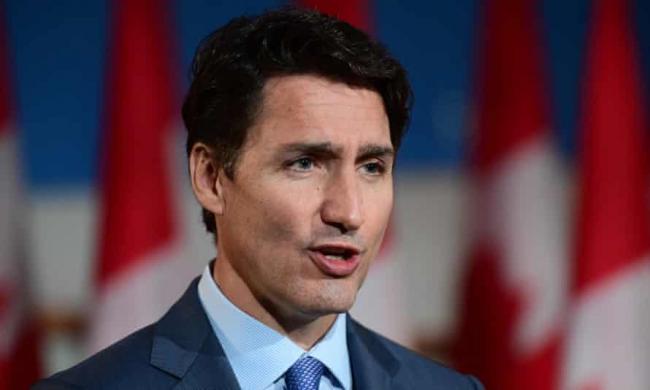Articles Menu

8 Jul 2021
After recording the country’s highest ever temperatures of 49.6C, the town of Lytton in British Columbia, Canada, burst into flames. Residents had minutes to flee a “wall of fire” with nothing but the clothing on their backs. Like people in many other places in the world struggling with heatwaves, fires, droughts and strange extreme storms, BC residents now know what it feels like to live in a changing climate on an increasingly inhospitable planet.
It’s the helplessness you feel as a mother when your son is throwing up from heat exhaustion. It’s the fear you feel when your asthmatic niece struggles to breathe because of the dense smoke from wildfires. It’s the panic you feel when you know that your oldest son is out in northern British Columbia tree planting and that there are now 180 wildfires raging across the province, caused by unprecedented “fire weather” – 710,000 lightning strikes in a 24-hour period.
It’s also the anger you feel when you know that our government has utterly failed to take the actions necessary to keep us safe. The most recent data, despite the Trudeau government’s claims of climate leadership, shows that Canada has made no progress in reducing emissions. Canada’s emissions are higher today than they were in 1990 and Canada is performing worse on climate change than any other G7 country.
So why are we doing so poorly on addressing this emergency, in a relatively wealthy country with a stable democracy in which the majority of the population not only believes in climate change but supports strong action to move to a low carbon economy? The answer lies in part with the level of influence, lobbying and power of the fossil fuel companies in the committees, councils and commissions that are shaping our response to the climate emergency. The fox is watching the henhouse.
Canada’s big banks and pension funds are among the largest fossil fuel financiers and investors in the world. Their enabling of the fossil fuel industry hinders real action on climate.
The distortion of the debate is so remarkable – not only in Canada but internationally – that we are somehow still trying to convince ourselves that it is OK to finance and build more fossil fuel infrastructure, oil sands pipelines, offshore drilling and LNG plants while talking about committing to “net-zero” emissions.
Climate policy is complicated. We know we have to reimagine and re-engineer how we produce goods, how we heat and power our homes and how we move about the world. But what the fossil fuel companies have been working to cover up and obfuscate is that emissions trapped in our atmosphere come from three products: oil, gas and coal. Today we have the technology to replace most of the uses of these products – from electric vehicles to renewable energies like wind and solar to large-scale battery storage. But in Canada, almost every policy proposed to help us shift away from fossil fuel production and use has been watered down, delayed or shelved because of the lobbying and influence of the oil and gas companies. Just this month, while the government announced better goals for achieving zero emission cars and trucks, no laws or tailpipe regulations have been proposed. And in climate policy the devil is definitely in the details.
I have no doubt that at COP26, Canada will be lauded for its new, stronger targets and for its national carbon price. These policies are ones that, more than a decade ago, were thought to be enough. Similarly, a decade ago natural gas was considered a “bridge fuel” and along with biomass was thought to be better for the climate than coal. Today the science is clear that both exacerbate climate change, yet Canada continues to subsidize clearcutting our forests for wood pellets and fracking for liquified natural gas. In the face of the nightmare we are now living in, these policies are at best Band-Aids on a gaping wound and at worst they are throwing gas on the fire.
It’s time for the Trudeau government to change direction. As Seth Klein, author of the brilliant book The Good War has argued, our government needs to shift into emergency mode, start telling the truth and spend what it takes to win. During the pandemic, billions in Canadian stimulus spending went to the fossil fuel companies. In the last budget Canada spent pitifully little on climate change while again pouring billions into oil pipelines, oil cleanup and carbon capture and storage technology that the oil companies themselves should be paying for.
Pollution from oil and gas production is the fastest-growing source of Canada’s emissions, yet our government has no plan to wind down the industry and ensure a just transition for workers and their families. We cannot address the climate emergency if we refuse to honestly confront the challenges in front of us and pretend that it’s OK to keep building more of the problem instead of focusing on solutions.
What the science has been telling us for decades and what we can now see in the smoke outside our windows is that every ton of carbon we don’t emit will save lives. We have run out of time for lauding yesterday’s policies, for spending billions of taxpayers’ dollars trying to keep alive a sunset industry that is literally killing us. If you are hurtling towards a cliff you don’t just attempt to slow down a bit. You change direction.
Tzeporah Berman, BA, MES, LLD is the chair of the Fossil Fuel Nonproliferation Treaty Initiative and international program director of Stand.Earth. She lives with her husband and two sons in British Columbia, Canada.
[Top photo: ‘It’s time for the Trudeau government to change direction.’ Photograph: Canadian Press/Rex/Shutterstock]